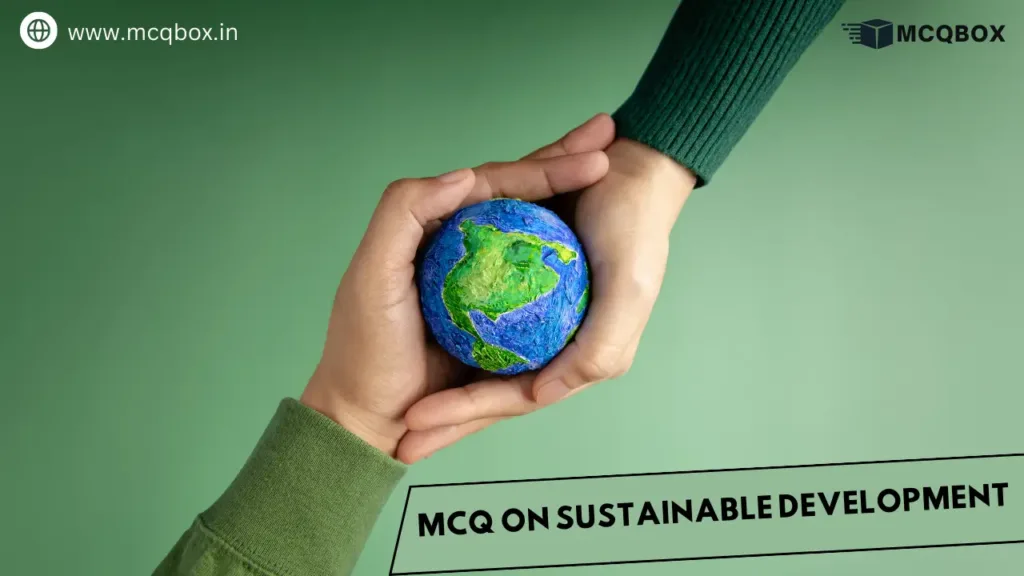Ready to test your knowledge about the Sustainable Development? Take this MCQ on Sustainable Development.

MCQ on Sustainable Development
1. Which of the following best defines sustainable development?
A) Rapid economic growth at the expense of environmental degradation
B) Balancing economic growth, social development, and environmental protection
C) Focusing solely on environmental protection without considering economic growth
D) Promoting social equality without regard to environmental concerns
Answer: B) Balancing economic growth, social development, and environmental protection
2. Which of the following is NOT a pillar of sustainable development?
A) Economic development
B) Environmental protection
C) Political stability
D) Social equity
Answer: C) Political stability
3. Which of the following is an example of a non-renewable resource?
A) Solar energy
B) Wind energy
C) Fossil fuels
D) Hydroelectric power
Answer: C) Fossil fuels
4. What is the primary objective of sustainable development?
A) Maximizing profits for businesses
B) Conserving resources for future generations
C) Rapid industrialization
D) Exploiting natural resources for short-term gain
Answer: B) Conserving resources for future generations
5. When we accomplish only two out of three pillars of sustainable development, which option is correct?
A) Economic + Environmental sustainability = Viable
B) Social + Environmental sustainability = Bearable
C) Social + Economic sustainability = Equitable
D) All of the above
Answer: D) All of the above
6. In which year was the term ‘sustainable development’ coined?
A) 1992
B) 1978
C) 1980
D) 1987
Answer: C) 1980
7. When was the United Nations Commission on Sustainable Development (CSD) established by the UN General Assembly?
A) 1995
B) 1994
C) 1993
D) 1992
Answer: D) 1992
8. Which of the following parameters is not typically included in sustainable development goals?
A) Gender disparity and diversity
B) Inter and intra-generational equity
C) Carrying capacity
D) None of the above
Answer: D) None of the above
9. Which of the following is NOT a strategy for promoting sustainable development?
A) Investing in renewable energy sources
B) Encouraging overconsumption of resources
C) Implementing policies to reduce pollution
D) Promoting education and awareness about environmental issues
Answer: B) Encouraging overconsumption of resources
10. Toxic elements like mercury and lead often lead to ________________.
A) Noise pollution
B) Air pollution
C) Water pollution
D) Land contamination
Answer: D) Land contamination